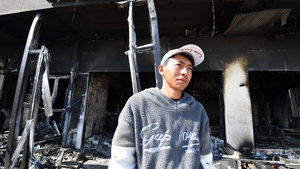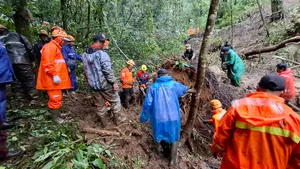Opinion
Revitalizing Pancasila
On the occasion of the anniversary of Pancasila on June 1, 2018, it is highly relevant to reflect on the various challenges of revitalizing Pancasila in the life of the nation and the state in the current era of globalization.
/https%3A%2F%2Fkompas.id%2Fwp-content%2Fuploads%2F2018%2F05%2F20180502WAK4-1.jpg)
The students show books entitled Cahaya Bineka, Taman Bangsa: Pancasila Value in Education (The Light of Diversity, Garden of the Nation: Pancasila Value in Education) in during the familiarization of the four pillars of the People\'s Consultative Assembly (MPR) of the Republic of Indonesia and Declaration of Pancasila Education Practice at Schools at Nusantara IV Building, The House of Representatives Complex, Senayan , Jakarta, Wednesday (2/5/2018). The event was initiated by the MPR RI in cooperation with the Pancasila Ideology Development Board (BPIP), House of Representatives Pancasila Caucus, and the Cahaya Guru Foundation.
On the occasion of the anniversary of Pancasila on June 1, 2018, it is highly relevant to reflect on the various challenges of revitalizing Pancasila in the life of the nation and the state in the current era of globalization.
As has been widely acknowledged, the challenges of our future nationhood are very complex. According to People\'s Consultative Assembly (MPR) Decree No. VI/MPR/2001 on Ethics of the Life of the Nation, there are two primary types of challenges, internal and external. The internal challenges include: (1) poor religious comprehension and practices and the emergence of an incorrect understanding and narrow-minded religious teachings; (2) neglect of regional interests and the rise of regional fanaticism; (3) lack of understanding and appreciation for diversity and plurality; (4) lack of exemplary attitudes and behaviors among the nation’s leadership and leading figures; and (5) ineffective enforcement of the law.
Versi cetak artikel ini terbit di harian Kompas edisi di halaman 6 dengan judul "Revitalisasi Pancasila".
Baca Epaper Kompas





